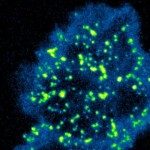Lien vers Pubmed [PMID] – 18728635
Lien DOI – 10.1038/nri2397
Nat Rev Immunol 2008 Sep; 8(9): 699-712
The T-cell receptor (TCR) signalling machinery is central in determining the response of a T cell (establishing immunity or tolerance) following exposure to antigen. This process is made difficult by the narrow margin of self and non-self discrimination, and by the complexity of the genetic programmes that are induced for each outcome. Recent studies have identified novel negative feedback mechanisms that are rapidly induced by TCR engagement and that have key roles in the regulation of signal triggering and propagation. In vitro and in vivo data suggest that they are important in determining ligand discrimination by the TCR and in regulating signal output in response to antigen.


